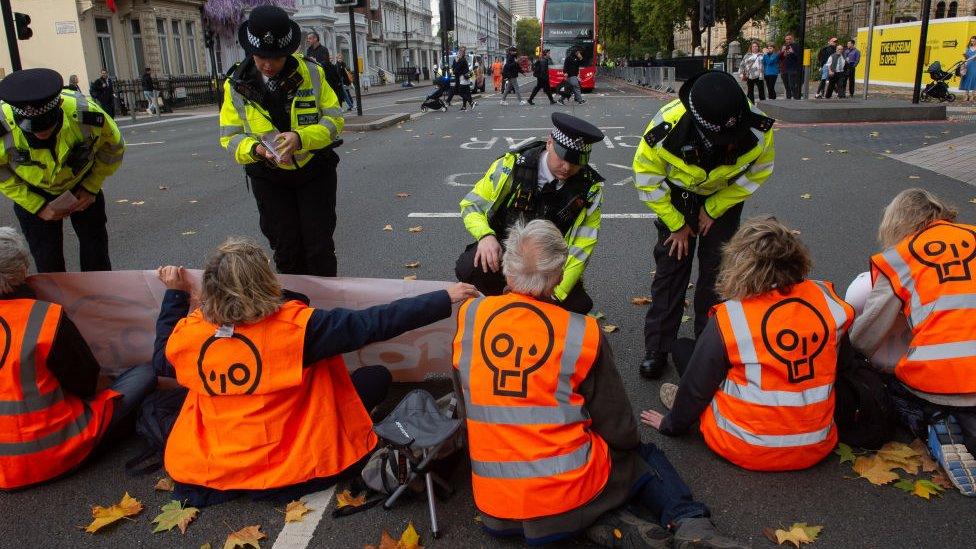Move to extend police protest powers ruled unlawful
- Published

Environmental activists Just Stop Oil are among those who have used tactics such as blocking roads
An attempt by the government to widen police powers over protests has been ruled unlawful by the High Court.
Legislation introduced last year under ex-home secretary Suella Braverman gave officers more leeway to stop disruption.
But now two judges have ruled it did not have a proper legal basis, and the Home Office failed to consult properly on it.
The department said it was "disappointed" and would be appealing.
An accelerated appeal process will now take place, with an order quashing the legislation put on hold.
The Home Office said it would "consider all other options to keep this important power for police".
The timing of the ruling is awkward for ministers, who are considering new police powers to curtail pro-Palestinian marches.
Campaign group Liberty, which brought the case, has called for police to refrain from using the powers until the appeal has been heard.
In a statement, it called the ruling a "victory for democracy" that showed the government "cannot step outside of the law to do whatever it wants".
The regulations, passed by MPs in June last year, lowered the threshold for what protest activity counts as "serious disruption" in England and Wales.
It said any disruption that was "more than minor" should count - but campaigners argued this would give too much power to police.
Lords rejection
An official assessment of the law estimated the new definition could increase police intervention at protests by up to 50%.
The move, announced amid the backdrop of disruptive protests by groups such as Just Stop Oil and Insulate Britain, was controversial at the time.
This was in part because the changes had already been rejected in the House of Lords six months before that.
In a , Lord Justice Green and Mr Justice Kerr said the legal basis underpinning the new powers was insufficient.
It also said the Home Office had acted unlawfully by only asking police forces what they thought of the powers, rather than consulting more widely with the public and groups that might be affected.
New powers recommended
It comes as ministers consider recommendations from the government's adviser on political violence for tighter rules on public protests.
In a report, Lord Walney, the former Labour MP John Woodcock, said it should be easier for police forces to ban demonstrations.
He said this should include where they reasonably believe protests could lead to "intimidation from threatening or abusive conduct".
He also suggested groups holding a "significant number of large demonstrations" could be asked to pay towards policing costs, and businesses affected by disruption should be able to get compensation.
In a statement, Home Secretary James Cleverly said ministers would look at his recommendations "over the coming weeks".